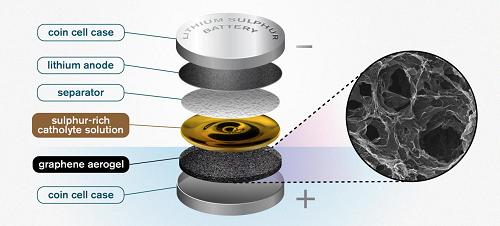Researchers from the University of Bath in the United Kingdom have discovered that suspending aerogel in the honeycomb structure of an aircraft engine can achieve a significant noise reduction effect. The Merlinger-like structure of this aerogel material is very light, which means that this material can be used as an insulator in the engine compartment of an aircraft with almost no effect on the total weight.
At present, the University of Bath in the UK has developed an extremely light graphene material, graphene oxide-polyvinyl alcohol aerogel, weighing only 2.1 kilograms per cubic meter, which is the lightest sound insulation material ever manufactured.
Researchers at the university believe that this material can reduce aircraft engine noise and improve passenger comfort. It can be used as an insulating material inside aircraft engines to reduce noise by as much as 16 decibels, thereby making jet engines emit 105 The decibel roar fell closer to the sound of a hair dryer. Currently, the research team is testing and further optimizing this material to provide better heat dissipation, which is good for fuel efficiency and safety.
The researchers who led the study also stated that they have successfully developed such a low-density material by using a liquid combination of graphene oxide and polymer. This emerging material is a solid material, but contains a lot of air, so there are no weight or efficiency restrictions in terms of comfort and noise. The initial focus of the research team is to cooperate with aerospace partners to test the effect of this material as a sound insulation material for aircraft engines. Initially, it will be applied in the aerospace field, but it may also be used in many other fields such as automobiles and marine transportation and construction. It can also be used to make panels for helicopters or car engines. The research team expects this aerogel will enter the use phase within 18 months.
Post time: Jun-25-2021







